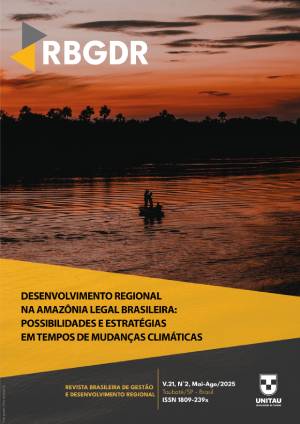Assessment of the Impact of the Rural Environmental Registry on Deforestation Reduction and Environmental Compliance in the Brazilian Central-West
DOI:
https://doi.org/10.54399/rbgdr.v21i2.7877Keywords:
Rural Environmental Registry, Deforestation, Environmental Compliance, Agricultural Frontier, Public PolicyAbstract
Agriculture and livestock farming are fundamental to the Brazilian economy and have modernized with advanced technologies, expanding their activities through the conversion of native areas. To preserve the native vegetation of biomes, Brazil updated its Forest Code in 2012, establishing the Rural Environmental Registry (CAR). This instrument aims to compile information from rural properties, creating an essential database for environmental and economic control, monitoring, planning, and combating deforestation. Thus, this article measures and evaluates the impact of the CAR on deforestation and environmental compliance in rural properties in the Central-West region of Brazil, a significant agricultural frontier in grain production for the commodities market, with municipalities located in the Legal Amazon. Using the Difference-in-Differences method proposed by Callaway and Sant'Anna (2021), the results indicated a reduction in deforestation for small properties registered in 2015 and 2016. Regarding environmental compliance, there was an increase in the likelihood of being in compliance with the law from the fourth year onward for small properties, during which period there was also a reduction in deforestation.
Downloads
Metrics
Downloads
Published
How to Cite
Issue
Section
License
Copyright (c) 2025 Revista Brasileira de Gestão e Desenvolvimento Regional

This work is licensed under a Creative Commons Attribution-NonCommercial 4.0 International License.
Authors who have their papers accepted and published in the Brazilian Journal of Regional Management and Development must agree to the copyright policy CC BY https://creativecommons.org/licenses/by/4.0/.
If the article is accepted for publication, the copyright is automatically assigned to the Brazilian Journal of Regional Management and Development.


















